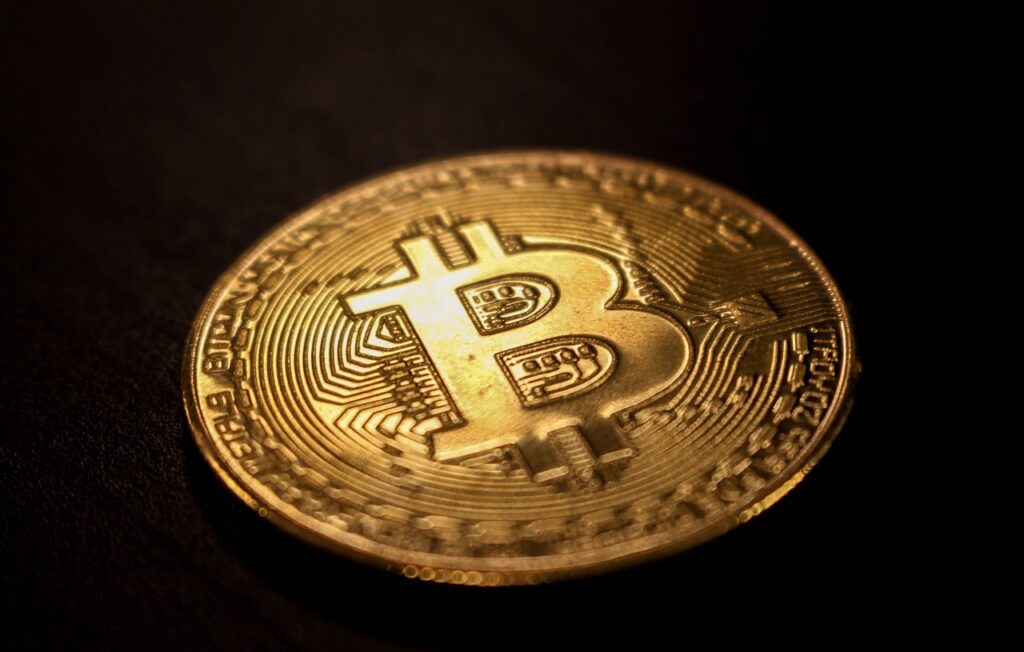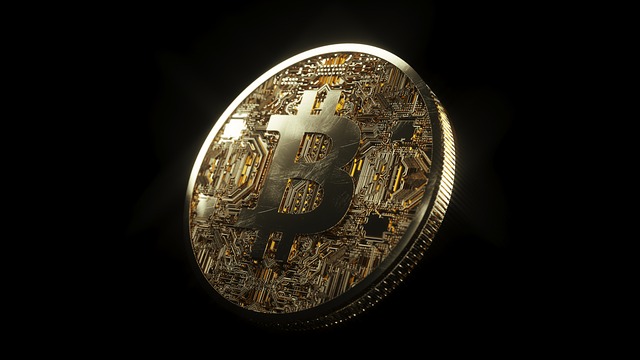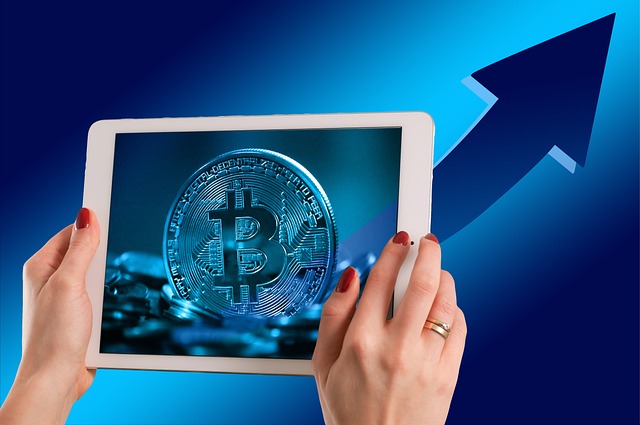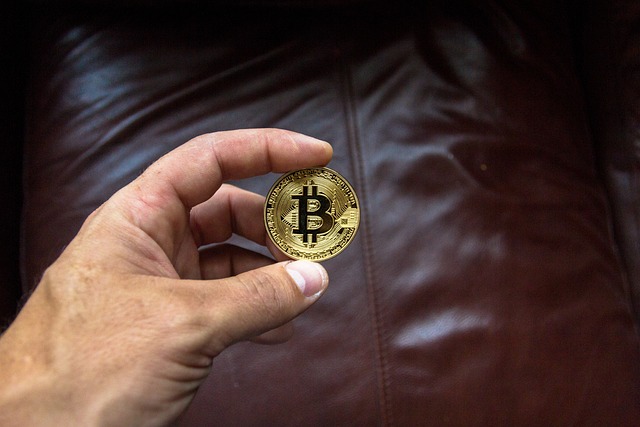Decentralized Finance System Explained: From Start to Finish
Decentralized Finance System Explained: From Start to Finish

What is Decentralized Finance System?
Decentralized Finance System, also known as DeFi, is a rapidly emerging concept that aims to revolutionize the traditional financial system. Unlike traditional finance, which relies on centralized institutions such as banks and intermediaries, DeFi operates on a decentralized network. This means that financial activities, such as lending, borrowing, and trading, are conducted directly between individuals without the need for intermediaries.
One of the key features of DeFi is its utilization of blockchain technology. Blockchain enables secure and transparent transactions by recording them in a public ledger, accessible to all participants. This technology ensures that all transactions are tamper-proof and cannot be altered once recorded. Additionally, DeFi leverages smart contracts, which are self-executing agreements stored on the blockchain. These smart contracts automatically facilitate transactions when predefined conditions are met, eliminating the need for intermediaries and reducing the associated costs and delays.
How Does Decentralized Finance System Work?
Decentralized Finance, commonly known as DeFi, has gained significant attention in recent years. But how exactly does this system work? Let’s delve into the mechanics of DeFi.
At its core, DeFi operates on blockchain technology, which ensures transparency, security, and eliminates the need for intermediaries. Through various decentralized applications (DApps), users can engage in financial activities such as lending, borrowing, trading, and investing directly with each other. The protocol, governed by smart contracts, enables automated and trustless transactions. In simple terms, the DeFi system replaces traditional financial institutions with code, offering users greater control over their financial assets and eliminating the reliance on centralized authorities.
To participate in DeFi, users need to connect their digital wallets to compatible platforms and interact with the corresponding smart contracts. These smart contracts automatically execute the predefined terms of a financial agreement, eliminating the need for third-party verification. Users can lend their crypto assets, earning interest, or borrow them by providing collateral. The borrowing process is secured by over-collateralization to mitigate the risk of default. This way, the DeFi system protects both lenders and borrowers while maintaining the system’s overall stability.
In the next section, we will explore the benefits of decentralized finance, shedding light on its potential to revolutionize the traditional financial landscape. Stay tuned to discover the advantages that DeFi can bring to individuals and the broader economy.
• DeFi operates on blockchain technology, ensuring transparency and security.
• Users can engage in financial activities such as lending, borrowing, trading, and investing directly with each other through decentralized applications (DApps).
• Smart contracts govern the protocol and enable automated and trustless transactions.
• The DeFi system replaces traditional financial institutions with code, giving users greater control over their assets.
• Users connect their digital wallets to compatible platforms to participate in DeFi.
• Smart contracts automatically execute predefined terms of a financial agreement without third-party verification.
• Users can lend their crypto assets and earn interest or borrow them by providing collateral.
• Borrowing is secured by over-collateralization to mitigate the risk of default.
• The DeFi system protects both lenders and borrowers while maintaining overall stability.
The Benefits of Decentralized Finance System
Decentralized Finance, or DeFi, offers a range of benefits that make it an attractive alternative to traditional financial systems.

Another key benefit of the decentralized finance system is the potential for increased financial inclusion. With DeFi, anyone with an internet connection can participate in a wide range of financial activities, such as lending, borrowing, and investing, without the need for a traditional bank account. This can empower individuals who are unbanked or underbanked to access financial services, thereby giving them greater control over their own financial future. Furthermore, the decentralized nature of DeFi means that users have more control over their funds and are not reliant on a centralized authority that could impose restrictions or fees. This level of autonomy and self-custody is highly valued by proponents of DeFi and can help to foster a more inclusive and equitable financial system for all.
The Role of Blockchain Technology in Decentralized Finance System
Blockchain technology plays a crucial role in the development and functioning of the decentralized finance system. By providing a transparent and immutable ledger of transactions, blockchain ensures trust and security in the DeFi ecosystem. Unlike traditional finance systems that rely on intermediaries and central authorities, blockchain enables peer-to-peer transactions and eliminates the need for intermediaries. This not only reduces costs but also enhances the efficiency of financial transactions.
One of the key features of blockchain technology in DeFi is its ability to enable programmable money through the use of smart contracts. Smart contracts are self-executing contracts that automatically execute predefined actions when certain conditions are met. In the context of decentralized finance, smart contracts facilitate the creation and execution of various financial instruments, such as loans, insurance policies, and derivatives, without the need for intermediaries. This not only streamlines the process but also eliminates the possibility of fraud and manipulation, as the terms and conditions are coded into the contract and cannot be altered.
Understanding Smart Contracts in Decentralized Finance System
Smart contracts play a crucial role in the decentralized finance system, also known as DeFi. These contracts are essentially self-executing agreements that are written in code and stored on a blockchain. Unlike traditional contracts that require intermediaries for enforcement, smart contracts automatically execute the terms and conditions once the predefined conditions are met. This eliminates the need for trust in the system as the outcome is determined by the code rather than relying on a third party.
The beauty of smart contracts lies in their ability to facilitate a wide range of financial transactions in a secure and transparent manner. They enable users to create decentralized applications (DApps) that can handle various financial activities, such as lending, borrowing, trading, and even complex derivatives. This provides individuals with the opportunity to participate in financial activities without relying on traditional financial institutions.

Exploring Decentralized Lending and Borrowing in DeFi
Decentralized lending and borrowing is one of the key components of the emerging decentralized finance system or DeFi. Unlike traditional lending and borrowing systems that rely on centralized intermediaries such as banks, DeFi offers a more inclusive and open approach. In DeFi, lending and borrowing activities are facilitated through smart contracts, which are self-executing contracts with the terms of the agreement directly written into the code. This eliminates the need for intermediaries and allows users to interact with each other directly.
One of the main advantages of decentralized lending and borrowing in DeFi is the increased accessibility it brings. Individuals from all over the world can participate in the lending and borrowing process, regardless of their location or financial status. Additionally, DeFi platforms often operate 24/7, providing users with the flexibility to lend or borrow funds at any time. This accessibility extends to borrowers as well, as they can access loans without requiring traditional collateral or credit history, making it a more inclusive system for those who may have been excluded from traditional lending processes.
The Rise of Decentralized Exchanges in DeFi
Decentralized exchanges (DEXs) have been gaining tremendous popularity in the world of decentralized finance (DeFi) over the past few years. Unlike traditional centralized exchanges, DEXs operate on a peer-to-peer network, eliminating the need for intermediaries and providing users with more control over their assets. This rise of DEXs has revolutionized the way we trade digital assets, making transactions faster, more secure, and transparent.
One of the main reasons for the surge in popularity of decentralized exchanges is their ability to offer greater privacy and security to users. Unlike centralized exchanges, DEXs do not require users to deposit their funds onto a centralized platform. Instead, transactions are executed directly from users’ wallets, allowing them to retain full custody of their assets. This eliminates the risk of hacks and potential loss of funds due to security breaches. Additionally, the use of blockchain technology provides transparency, as all transactions are recorded on a public ledger, allowing users to verify and track their trades independently. This decentralized nature of exchanges has not only attracted individual traders but also institutional players who value the security and transparency that decentralized exchanges offer.
The Importance of Decentralized Stablecoins in DeFi
Decentralized stablecoins play a crucial role in the world of decentralized finance (DeFi). These digital currencies are designed to maintain a stable value, often being pegged to a specific asset or currency. The importance of decentralized stablecoins lies in their ability to provide stability and reduce the risks associated with cryptocurrency volatility.
In traditional financial systems, stablecoins are typically issued by central authorities, such as banks. However, in DeFi, stablecoins can be created and managed using blockchain technology, without the need for intermediaries. This decentralization not only ensures transparency and trustworthiness but also allows anyone with an internet connection to access and use stablecoins. By eliminating the need for centralized control, decentralized stablecoins enable individuals to protect their wealth from economic uncertainties and have greater control over their financial transactions in the world of DeFi.
The Potential Risks and Challenges in Decentralized Finance System
Decentralized finance (DeFi) has undoubtedly gained traction in recent years, attracting attention from both investors and enthusiasts alike. However, like any emerging technology, there are potential risks and challenges that must be considered. One notable risk is smart contract vulnerabilities. Smart contracts, which are the backbone of DeFi applications, are prone to coding errors or exploits that could lead to financial losses. These vulnerabilities can be exploited by hackers, resulting in the loss of funds or even the collapse of an entire protocol.
Another challenge that DeFi faces is the issue of regulatory compliance. As decentralized systems operate across borders, it becomes increasingly difficult to establish a clear regulatory framework. Government bodies are still grappling with how to effectively regulate DeFi platforms, which often operate independently without intermediaries. This lack of oversight and accountability can potentially expose users to fraudulent activities or money laundering risks. Moreover, the absence of a centralized authority also makes it challenging to address issues such as consumer protection, investor rights, and dispute resolution in the DeFi space.
As DeFi continues to evolve and gain mainstream adoption, addressing these risks and challenges will be crucial for its long-term stability and success. It is imperative for developers, regulators, and users to work together to enhance security measures, establish clear regulations, and promote responsible practices within the DeFi ecosystem. Only through such collective efforts can we unlock the full potential of decentralized finance and harness its transformative power in the financial world.
Exploring the Future of Decentralized Finance System
The future of the decentralized finance system looks promising, as it continues to gain traction and evolve. One aspect that holds great potential is the expansion of DeFi applications beyond financial services. While DeFi initially focused on lending, borrowing, and exchanges, we are now witnessing the exploration of other sectors such as insurance, identity management, and asset ownership. This diversification indicates a shift towards a more comprehensive and inclusive financial ecosystem.
Another trend that is likely to shape the future of DeFi is the integration of decentralized finance with traditional financial systems. As DeFi gains recognition and adoption, traditional financial institutions are starting to explore ways to incorporate decentralized technologies into their existing infrastructure. This collaboration can bridge the gap between centralized and decentralized finance, providing users with the benefits of both systems while ensuring regulatory compliance and consumer protection. The seamless integration of DeFi with traditional finance can potentially unlock a multitude of opportunities for individuals and businesses, paving the way for a more efficient and accessible financial system.
What is Decentralized Finance System?
Decentralized Finance System, also known as DeFi, is a financial system that operates on a decentralized network, typically using blockchain technology. It aims to provide financial services such as lending, borrowing, and trading without the need for intermediaries like banks.
How Does Decentralized Finance System Work?
DeFi works by utilizing smart contracts, which are self-executing contracts with the terms of the agreement directly written into code. These smart contracts are deployed on a blockchain network and automatically execute transactions when certain conditions are met. Users can interact with these smart contracts using decentralized applications (dApps) to access various financial services.
What are the Benefits of Decentralized Finance System?
The benefits of DeFi include increased accessibility, transparency, and financial inclusivity. Users can access these services from anywhere in the world, without the need for traditional financial intermediaries. Additionally, the transparent nature of blockchain technology ensures that transactions can be verified by anyone, enhancing trust and reducing the risk of fraud.
What is the Role of Blockchain Technology in Decentralized Finance System?
Blockchain technology plays a crucial role in DeFi by providing a secure and transparent platform for financial transactions.

What are Smart Contracts in Decentralized Finance System?
Smart contracts are self-executing contracts with the terms of the agreement written in code. These contracts automatically execute when specific conditions are met, eliminating the need for intermediaries. In DeFi, smart contracts enable automated lending, borrowing, and trading, ensuring that transactions are executed accurately and securely.
What is Decentralized Lending and Borrowing in DeFi?
Decentralized lending and borrowing in DeFi refer to the ability to lend or borrow digital assets directly from other users without the involvement of traditional financial institutions. Through the use of smart contracts, lenders can earn interest on their holdings, while borrowers can access funds without the need for collateral, based on their creditworthiness.
What is the Rise of Decentralized Exchanges in DeFi?
Decentralized exchanges (DEXs) are platforms that allow users to trade digital assets directly with each other without the need for intermediaries. DEXs have gained popularity in DeFi due to their ability to provide greater privacy, security, and control over assets. They operate on blockchain networks, ensuring that transactions are transparent and resistant to manipulation.
What is the Importance of Decentralized Stablecoins in DeFi?
Decentralized stablecoins are digital assets that aim to maintain a stable value by being pegged to a reserve asset like a fiat currency or a commodity. These stablecoins play a crucial role in DeFi by providing stability and mitigating the volatility associated with cryptocurrencies. They enable users to hedge against price fluctuations and facilitate more efficient transactions within the ecosystem.
What are the Potential Risks and Challenges in Decentralized Finance System?
Some potential risks and challenges in DeFi include smart contract bugs or vulnerabilities, regulatory uncertainty, scalability issues, and the potential for fraudulent or malicious actors. As DeFi is still an emerging space, it is important for users to conduct thorough research and exercise caution when participating in these platforms.
What is the Future of Decentralized Finance System?
The future of DeFi looks promising, as it has the potential to revolutionize traditional financial systems. It is expected to continue growing, attracting more users and investment into the ecosystem. However, challenges such as scalability, regulatory frameworks, and user education will need to be addressed to ensure its widespread adoption and long-term success.
Todays Featured Product:
Buy, exchange and grow your crypto securely with a Ledger hardware wallet, combined with the Ledger Live app. It’s never been easier to keep your crypto safe and accessible. Buy direct from Ledger.com and get todays Special Offers Here.




